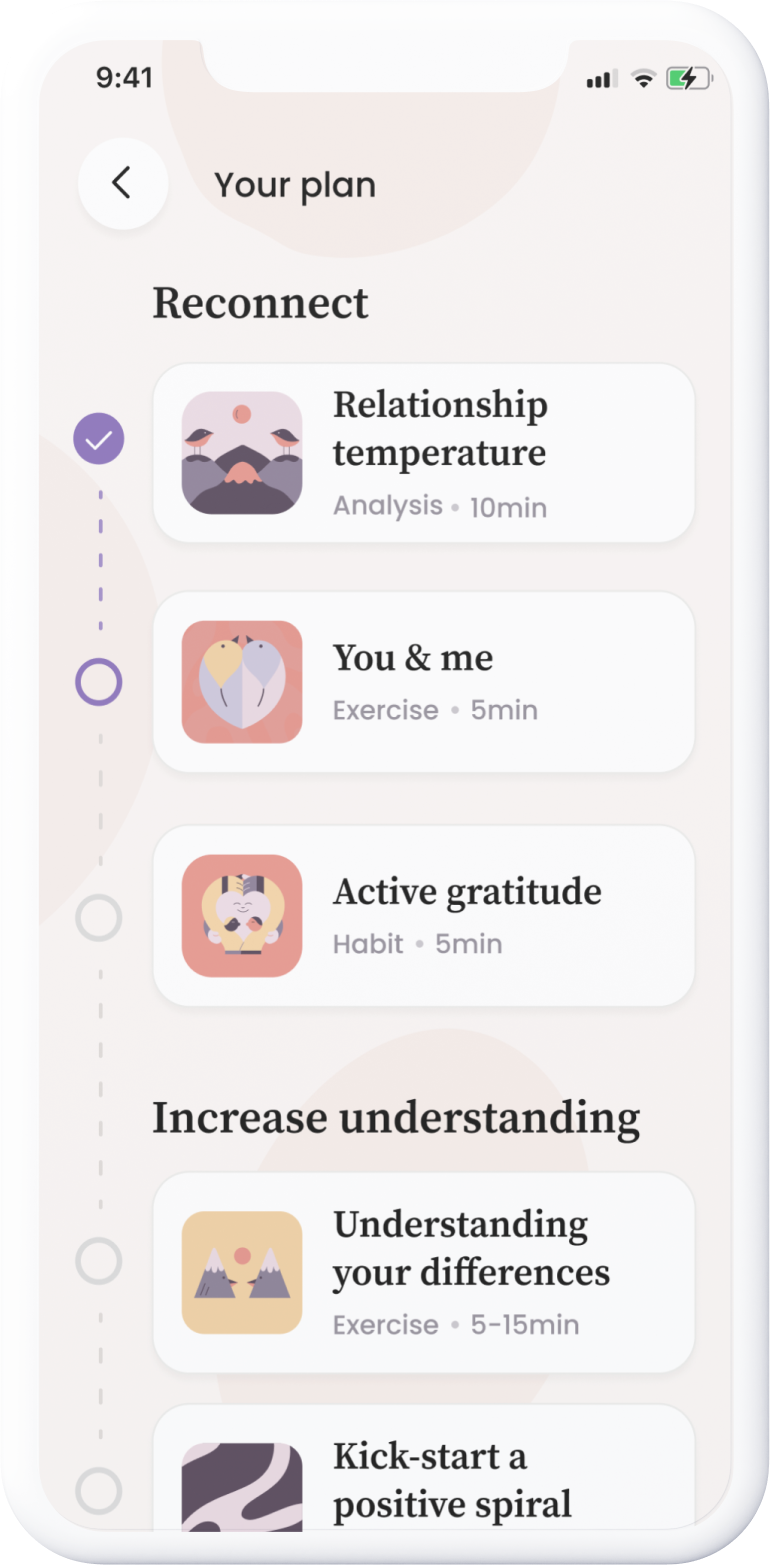Borderline Personality Disorder and Relationships
Navigating the challenges of living with borderline personality disorder.- 3 May 2024
- 8min

Borderline Personality Disorder (BPD) is a complex and multifaceted mental illness that affects how a person thinks, feels, and manages relationships with others.
People with BPD may experience a range of symptoms, including intense feelings of emptiness, instability in relationships, impulsivity, extreme fear of abandonment, rapid mood swings, and a sense of identity disturbance. These symptoms can lead to difficulties in many aspects of life, including work, school and relationships.
It's important to remember that Borderline Personality Disorder manifests differently for each individual. Symptoms can vary in severity, and some individuals may experience milder or less frequent symptoms than others. It's also possible for a person with BPD to have certain traits during periods of stress or crisis but not consistently or in all aspects of their lives.
Not everyone has BPD
It's important to understand that while some individuals may exhibit similar traits associated with BPD, it doesn't necessarily mean they have the diagnosis. Diagnosing borderline personality disorder requires a comprehensive evaluation by a qualified professional.
Some individuals may exhibit certain BPD traits without meeting all the criteria for a diagnosis. These individuals may be described as having subclinical borderline personality traits. This means they display some similar behaviours and thought patterns but not to the extent required for a diagnosis.
For individuals experiencing subclinical borderline personality traits or struggling with symptoms resembling BPD, it might still be important to seek professional help and support during periods when the symptoms are affecting their everyday life. Even if they may not meet all the criteria for a diagnosis, these traits can still negatively affect their quality of life and relationships. Therapy and support can help manage symptoms and provide well-being.
People with BPD - living with it
For those people with BPD, daily life can be a constant struggle. Feelings of emptiness and loneliness can be overwhelming, and difficulty managing emotional reactions can lead to impulsive behaviours and self-harming tendencies. Many people with BPD struggle with self-image and identity, making it challenging to feel like a cohesive person.
- Intense Emotional Turmoil: Perhaps the most defining aspect of living with BPD is the rollercoaster of emotions. Intense feelings of anger, sadness, anxiety, and shame can surface rapidly and without warning, making it challenging to maintain emotional stability. These emotional fluctuations can be exhausting and overwhelming, often leading to impulsivity and self-destructive behaviours in an attempt to cope.
- Struggles with Self-Image and Identity: people with BPD often grapple with a fragmented sense of self, characterised by an unstable self-image and identity. They may struggle to define who they are and may adopt different personas or identities in different situations. This identity disturbance can lead to confusion, feelings of emptiness, and a pervasive sense of not knowing oneself.
- Fear of Abandonment: The fear of being abandoned or rejected by loved ones This fear can lead to clingy, dependent behaviour in relationships as individuals with BPD desperately seek validation and reassurance. However, their intense fear of abandonment can sometimes push others away.
- Impulsive Behaviours: It can manifest in various ways, including reckless spending, substance abuse, binge eating, self-harm, or engaging in risky sexual behaviour. These impulsive behaviours often provide temporary relief from emotional distress but can have serious consequences for long-term well-being.
- Difficulty Maintaining Relationships: Maintaining stability, having bpd and a relationship can be exceptionally challenging. Their intense emotional reactions, fear of abandonment, and impulsivity can strain relationships and make it difficult to establish trust and intimacy. Additionally, the constant mood swings and emotional volatility can be overwhelming for partners, friends, and family members.
- Feelings of Emptiness and Loneliness: Many people with BPD experience profound feelings of emptiness and loneliness, even in the presence of others. This sense of inner void can be incredibly distressing and may drive individuals to seek external validation and stimulation in an attempt to fill the void.
- Challenges in Daily Functioning: As mentioned previously, BPD can significantly impair daily functioning in various areas of life, including work, school, and social interactions. Difficulty regulating emotions, maintaining stable relationships, and coping with stressors can make it challenging to meet responsibilities and achieve long-term goals.
Borderline personality disorder and relationship challenges
Living with someone who has Borderline Personality Disorder (BPD) presents unique challenges in a relationship that require careful navigation and understanding. Beyond the rapid mood swings and fear of abandonment mentioned, there are several other significant things that couples may encounter.
People with BPD may have heightened sensitivity to perceived criticism or rejection, leading to intense emotional reactions. Their partners may struggle to express themselves honestly for fear of triggering an extreme response, leading to feelings of walking on eggshells.
They often oscillate between idealising their partners and devaluing them, viewing them as either perfect or deeply flawed. This can create a tumultuous dynamic in the relationship, leaving the partner unsure of where they stand and constantly striving to meet shifting expectations.
The fear of abandonment characteristic of BPD can lead to patterns of codependency and enmeshment in the relationship. Partners may feel responsible for managing their loved one's emotions and wellbeing, sacrificing their own needs and boundaries in the process.
Partners of a person with BPD may experience feelings of guilt for wanting to set boundaries or prioritise their own needs. At the same time, they may harbour resentment towards their partner for the emotional toll the relationship takes on them, leading to a cycle of conflicting emotions.
Trust can be a major issue when having borderline personality disorder and relationships, as partners may struggle to trust their loved one's emotional stability and intentions. Repeated episodes of impulsive behaviour or emotional volatility can erode trust over time, making it challenging to build a secure foundation for the relationship.
BPD relationship
Borderline Personality Disorder and relationships are complex and challenging and affect both the individual living with it and their close relationships. Navigating these challenges requires open communication, empathy, and a commitment to self-care for both partners. Seeking therapy, whether individually or as a couple, can provide valuable support and guidance in managing the complexities of a BPD and relationships. It's essential for both individuals to prioritise their mental health and well-being while working towards building a stable and fulfilling partnership.









